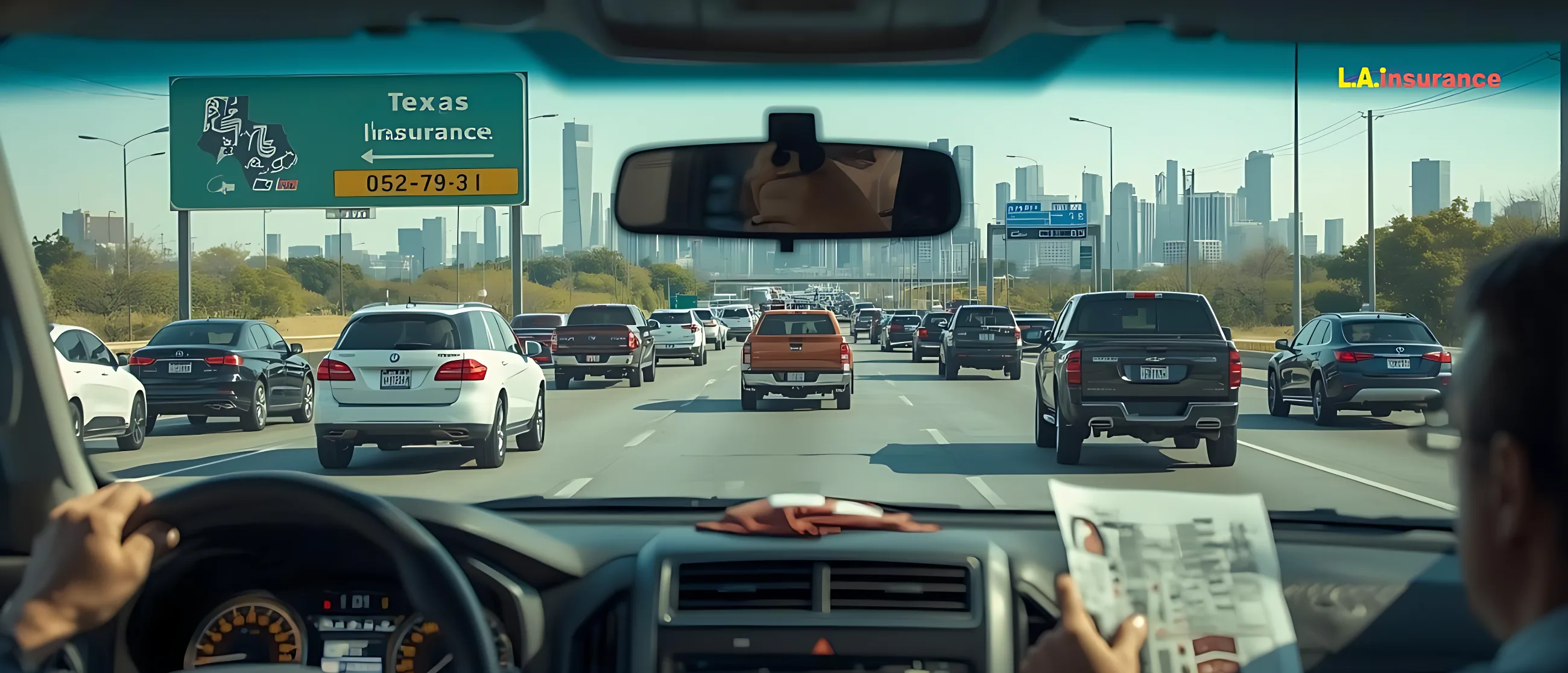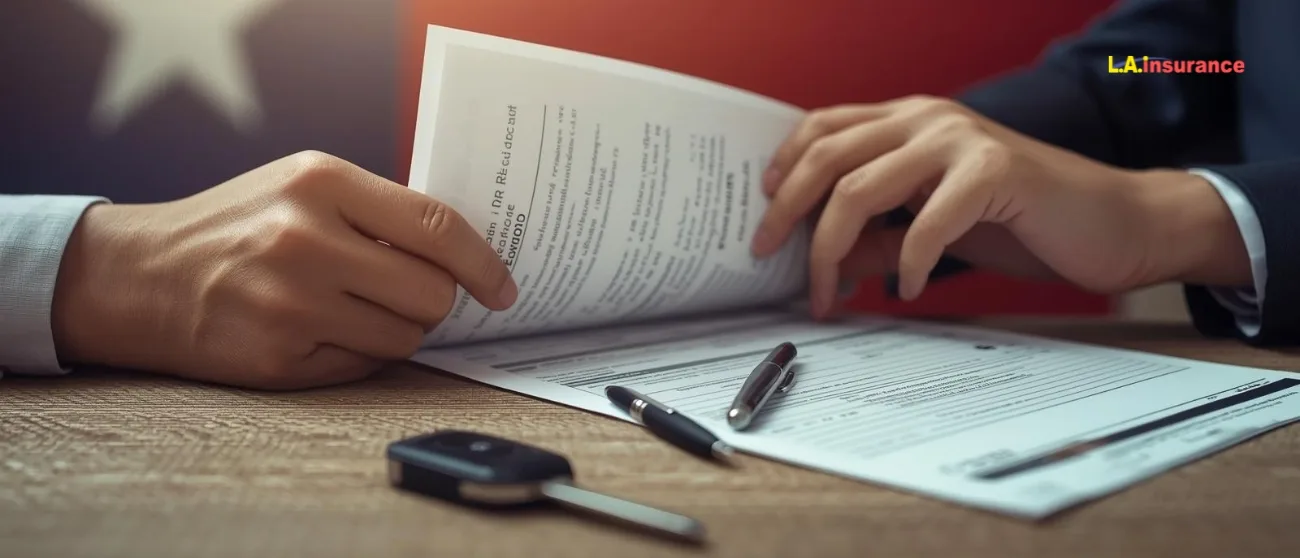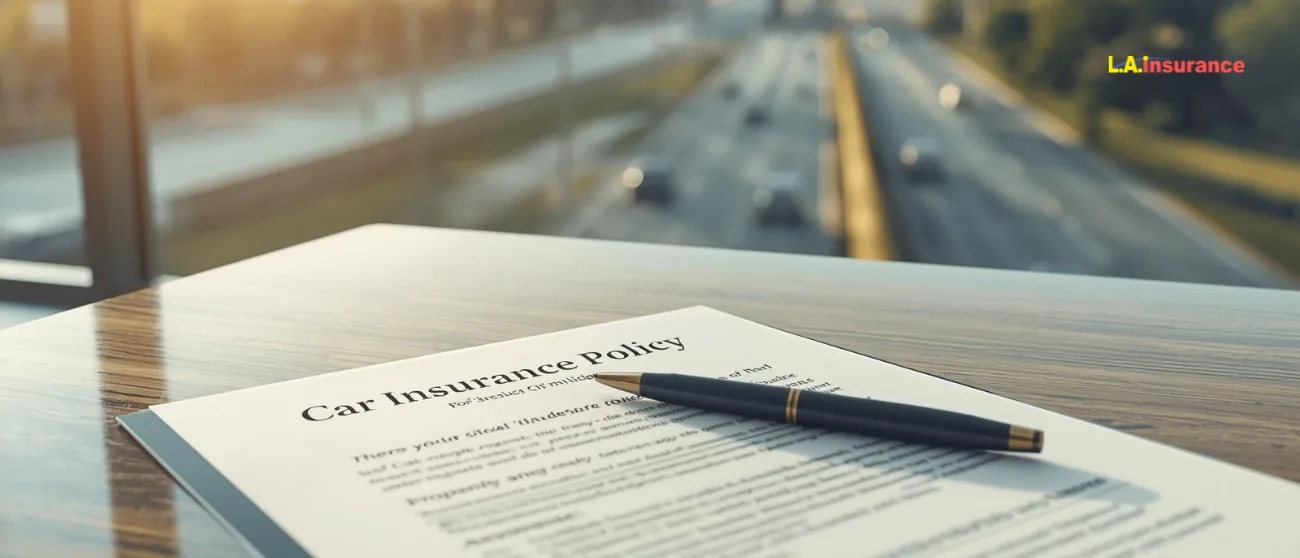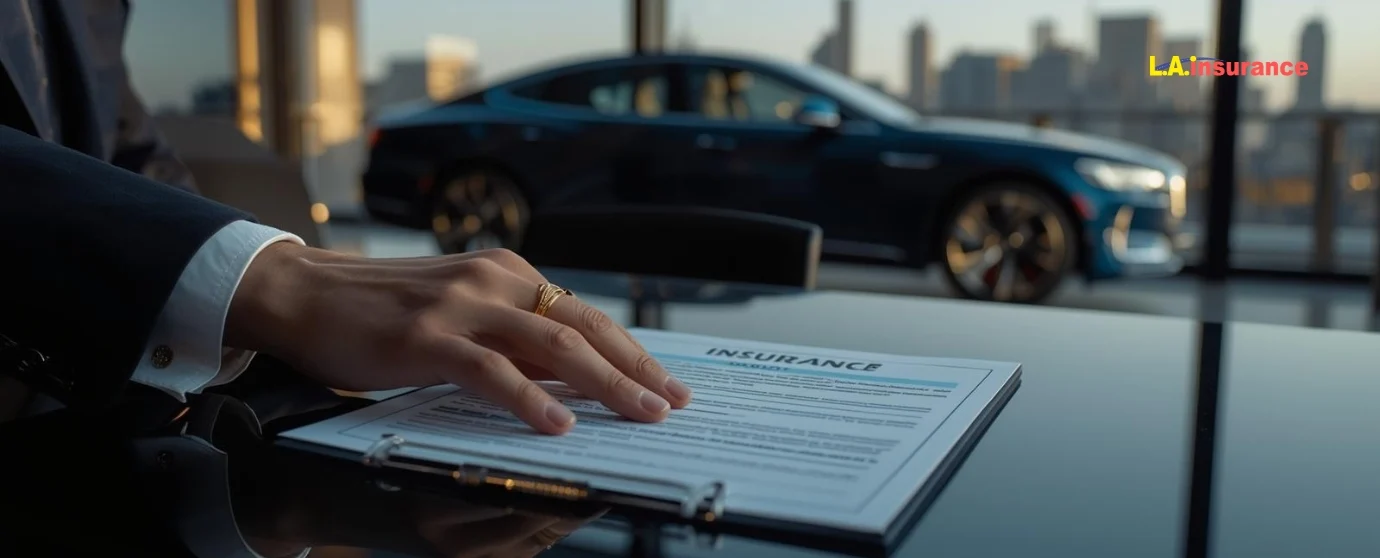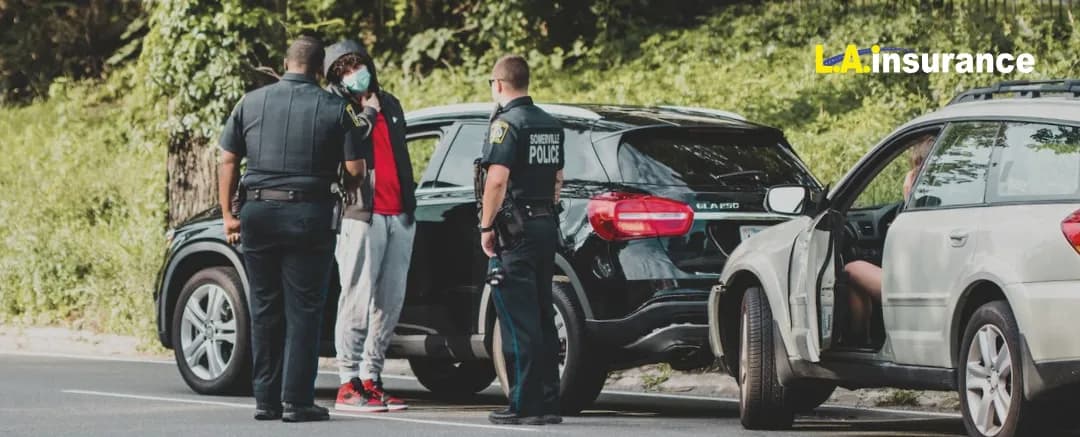
Publish Date: 31-03-2025
Auto Insurance
Last Updated: 15-12-2025
Can You Claim Car Accident Without Police Report
If accidents happen and you’re badly hurt, or your vehicle is damaged, the first and foremost thing is to call 911 for any medical help. However, if you’re in a better state and feel safe, the next thing you might notice is the severity of the accident and the extent of the damage.
If the damage is too bad and you need financial assistance, you might want to call your insurance provider to file a claim. To process any claim, the insurance companies require evidence and proper documents, and one of the vital documents is a police report.
However, in the case of a minor accident, a car accident victim might not feel like involving law enforcement officers in the midst of chaos. That’s how they may end up being inquisitive about, “Can you claim a car accident without a police report?”
The shortest possible answer is yes, you can. Although a police report is valuable, it’s not always required. Insurance companies use these reports to assess fault and process claims. But even without one, your claim can succeed with proper documentation. Therefore, knowing what to do after an accident is the most crucial!
In this article, we will discuss everything related to filing an insurance claim without a police report, the steps you need to take, how to make your claim stronger, and when it might be helpful to have legal or insurance help. So, let’s make the process clear and manageable for you.
Filing a Claim After a Car Accident Without a Police Report: Things to Know First
Accidents are stressful, and uncertainty often clouds the next steps. For policyholders, it’s normal to wonder how to handle a situation, especially if you don’t have a police report. Filing a claim without one is possible. Yet you need to know what to do after an accident!
After an accident, it’s very common to ask: Should I call my insurance provider immediately? Do I need a police report to file a claim? Undoubtedly, these are valid questions, and these queries arise because police reports are valuable for documenting accidents, assigning fault, and speeding up the claims process. But they aren’t always available.
Common Scenarios Where Police Reports May Not Be Available
A police report acts as an official account of the accident. It can clarify who was at fault, detail any damages, and even help with your settlement. However, not every situation allows for one. Some accidents are too minor, or they happen in places where police aren’t required, like private property.
Here are a few situations when you might not get a police report:
- Minor Accident with Minimal Damage: For fender benders or scratches, police may not respond to the scene.
- Accident on Private Property: If the accident occurs in a parking lot or private driveway, law enforcement might not file a report.
- Unreported Incidents: Sometimes, drivers involved in minor accidents choose not to involve the police.
- Accidents in Remote Locations: In areas with limited access to law enforcement, delays or non-responses are common.
- When No Injuries Are Apparent: If all parties appear unharmed, it may seem unnecessary to involve the police.
Why Knowing the Insurance Claims Process Matters?
Filing a claim isn’t just reporting an incident. It’s about protecting your financial stability and making sure that your losses are covered. If you don’t have a police report, insurers usually rely on alternative evidence, such as photographs, eyewitness testimony, and accident diagrams. Therefore, policyholders must act quickly to document the scene and communicate with their insurance company.
The process might seem a little bit difficult to deal with, straight away after an accident! But rules are rules! So, in this regard, we’d recommend knowing what your insurer expects and what evidence holds weight. Thus, you can avoid delays and strengthen your case.
Why It’s Good to Have a Police Report When Filing an Insurance Claim?
Though police reports are inadmissible in court, they can still help your insurer to process the claim quickly. It provides an official record of what happened and makes the claim process smoother for both the policyholders and insurance companies. While not mandatory, having a police report often simplifies the journey to compensation.
Here’s how police Reports simplify the claims process:
- Unbiased Documentation: Police officers act as neutral parties. Their reports provide an objective account of the accident, free from the perspective of those involved.
- Credibility: A police report lends legitimacy to your claim, reducing the likelihood of disputes between parties.
Besides, a police report can also help insurers as it contains a few critical details of the incident, such as:
- Time and Location: Insurers need precise information to verify the incident.
- Witness Accounts: Statements included in a police report can support your claim.
- Description of Damages and Injuries: These details help establish the severity of the accident.
Why Do Insurance Companies Prefer Police Reports?
Insurance companies mostly rely on police reports to determine liability and assess damages. These reports are seen as a reliable source of information which saves time for claims adjusters.
However, as we said before, a police report isn’t always necessary. For minor accidents or incidents on private property, insurance companies can still evaluate claims using alternative evidence such as photographs, witness testimony, and other documentation provided by the policyholder.
L.A. Insurance, the most affordable insurance agency, known for its hassle-free and faster claim process, always recommends getting a police report after car accidents. It’s a good idea to involve law enforcement after an accident when possible. It can speed up the claims process and make all the difference when resolving disputes or securing a fair settlement.
Can You Claim Car Accident without Police Report?
Yes, you can file a car accident claim without a police report as has been said previously. While a police report is helpful, it’s not always required to get your insurance claims processed. For minor car accidents or situations where police are unavailable, your insurance company will rely on other forms of evidence. But the process can be more complex without the official documentation a police report provides.
You need to be aware of the fact that filing a claim without a police report requires careful preparation. You’ll need to provide enough evidence to show what happened, who was involved, and who may be at fault. Now, let’s discuss how to successfully file a claim without a police report and what steps you can take to strengthen your case.
How to File a Claim Without a Police Report
When there’s no police report, you’ll need to rely on your own documentation. Here’s what to do:
- Exchange Information: Collect names, contact details, and insurance policy information from all drivers involved.
- Take Photos and Videos: Capture the accident scene, vehicle position and damage, skid marks, road conditions, and other relevant details.
- Document the Details: Write down the time, location, and a clear description of what happened.
- Gather Witness Statements: If there are any witnesses, ask for their contact information and statements about the incident.
- Notify Your Insurance Provider: Inform your insurance company about the accident as soon as possible and provide the evidence you’ve gathered.
If you take the above-mentioned steps, you’ll have a strong case even without having a police report.
Challenges of Filing Claim without a Police Report
Without a police report, there are hurdles to overcome:
- Proving Liability: Insurance companies might find it difficult to determine fault.
- Lengthy Investigations: Insurance adjusters may take more time to assess the evidence you provide.
- Potential Disputes: If the other driver disputes your version of events, it might get more complicated to resolve the issue.
However, to overcome these challenges, always keep the following tips in mind:
- To resolve any disputes, look for nearby surveillance or traffic cameras that may have recorded the crash.
- In some cases, a lawyer or crash reconstruction expert can help clarify what happened.
- Check your state's "statute of limitations," which tells you how long you have to file a claim or case. To give you an example, in Michigan, you only have three years to file a personal injury claim after a truck, car, or motorcycle crash.
- If necessary, consult an expert insurance agent or personal injury lawyer.
How Do Insurance Companies Evaluate Claims Without Police Reports?
If you don’t have a police report, insurers assess your claims by focusing on alternative forms of evidence. They typically rely on thorough documentation provided by the policyholder to determine what happened.
Without a police report, insurance adjusters look for the following:
- Photos and videos: Clear images of the accident scene, vehicle damage, and any road conditions are essential.
- Witness Statements: Reliable accounts from witnesses help clarify fault and sequence of events.
- Personal Documentation: Diagrams, written descriptions, and time-stamped photos support your version of events.
- Other Records: Medical bills or repair estimates.
Using this evidence, adjusters evaluate liability and calculate damages.
Insurance Companies investigation
When there’s no police report, insurance companies may conduct a deeper investigation. These include:
- Adjusters may contact witnesses directly to verify their statements.
- Insurers scrutinize visuals to establish the sequence of events.
- If available, footage from nearby cameras can serve as vital evidence.
Challenges Adjusters Face
Adjusters may encounter a few challenges without a police report:
- Conflicting Accounts: Disputes between drivers make it harder to assign fault.
- Incomplete Evidence: Missing details, like the accident’s exact time or location, can delay decisions.
- Subjectivity: Without an official police perspective, conclusions solely rely on the information provided by the parties involved.
Please note that, as a policyholder, your documentation and communication directly impact the claim’s outcome. Therefore, you should try to provide clear, organized evidence that helps adjusters to make decisions quickly.
When and Why Do Legal Aspects Come into Play?
When things go out of insurer’s control, legal aspects may come into play. If insurance claims involve disputes or significant damages that cannot be sorted out by your auto insurance provider, the intervention of auto accident lawyers might be useful. For instance, if your insurance company questions liability or the other driver contests your version of events, you may need legal support.
Key reasons legal issues arise:
- Determining Liability: Without a police report, proving fault can be difficult.
- State Laws: Many states have strict statutes of limitations for filing claims or lawsuits.
- Complex Cases: Accidents involving severe injuries, high repair costs, or unclear faults often require legal help.
Statute of Limitations for Filing Claims in Different States
The statute of limitations is the time limit you have to file a lawsuit or claim after a car accident. This limit varies by state and depends on whether you are making a personal injury claim or a property damage claim. You must submit your claim or lawsuit within this time frame. If you miss the deadline, you may lose your chance to get compensation.
Here’s a table that shows the statute of limitation for all 50 States:
State | Personal Injury | Property Damage |
Alabama | 2 Years | 2 Years (personal); 6 Years (real) |
Alaska | 2 Years | 2 Years (personal); 6 Years (real) |
Arizona | 2 Years | 2 Years |
Arkansas | 3 Years | 3 Years (personal); 4 Years (warranty) |
California | 2 Years | 3 Years |
Colorado | 3 Years | 3 Years |
Connecticut | 2 Years (3 Years statute of repose) | 2 Years |
Delaware | 2 Years (3 Years if not discoverable in 2) | 2 Years (personal); 3 Years (real) |
District of Columbia | 3 Years | 3 Years |
Florida | 2 Years (post-3/24/23); 4 Years (prior) | 4 Years |
Georgia | 2 Years | 4 Years |
Hawaii | 2 Years | 2 Years |
Idaho | 2 Years | 3 Years (personal); 4 Years (warranty) |
Illinois | 2 Years | 5 Years (personal); 4 Years (warranty) |
Indiana | 2 Years | 2 Years (personal); 6 Years (real) |
Iowa | 2 Years | 5 Years |
Kansas | 2 Years | 2 Years |
Kentucky | 1 Year (2 Years for motor vehicle) | 2 Years (personal); 5 Years (real) |
Louisiana | 1-2 Years (varies by action date) | 1-2 Years (varies by action date) |
Maine | 6 Years | 6 Years (personal); 4 Years (warranty) |
Maryland | 3 Years | 3 Years |
Massachusetts | 3 Years | 3 Years |
Michigan | 3 Years | 3 Years |
Minnesota | 2 Years (negligence: 6 Years) | 6 Years (personal); 2 Years (construction defects) |
Mississippi | 3 Years | 3 Years |
Missouri | 5 Years | 5 Years |
Montana | 3 Years | 2 Years (personal); 8 Years (real) |
Nebraska | 4 Years | 4 Years |
Nevada | 2 Years | 3 Years |
New Hampshire | 3 Years | 3 Years |
New Jersey | 2 Years | 6 Years |
New Mexico | 3 Years | 4 Years |
New York | 3 Years | 3 Years |
North Carolina | 3 Years | 3 Years |
North Dakota | 6 Years | 6 Years |
Ohio | 2 Years | 4 Years (personal); 2 Years (construction defects) |
Oklahoma | 2 Years | 2 Years |
Oregon | 2 Years | 6 Years |
Pennsylvania | 2 Years | 2 Years |
Rhode Island | 3 Years | 3 Years |
South Carolina | 3 Years | 3 Years |
South Dakota | 3 Years | 6 Years |
Tennessee | 1 Year | 3 Years |
Texas | 2 Years | 2 Years |
Utah | 4 Years | 3 Years |
Vermont | 3 Years | 6 Years |
Virginia | 2 Years | 5 Years |
Washington | 3 Years | 3 Years |
West Virginia | 2 Years | 2 Years |
Wisconsin | 3 Years | 6 Years |
Wyoming | 4 Years | 4 Years |
So, Can You File a Late Police Report After the Car Accident?
You can make a police report after an accident, but the steps you need to take will depend on where you live and what happened. It's often necessary to file a late police report when:
- The accident was initially unreported, but injuries or damages were discovered later.
- You were involved in a hit and run or the other driver is uncooperative. Read more about what to do after a hit and run.
- Local laws or insurance companies require an official record.
To file a late report, visit your local law enforcement agency or check if you can submit it online. Provide the details including the date, time, location, and any evidence such as photos, or witness statements.
Why Choosing the Right Insurance Policy Matters?
If you want a smoother claims process and better safety after an accident, it's very important to choose the right insurance policy. Comprehensive insurance will protect you against damage to your property, injuries to yourself, and any unforeseen complications even if you don’t have a police report.
The benefits of the right insurance policy:
- Faster Claims Processing: With the right policy, you can get quicker approvals, especially if you don’t have a police report.
- Broader Coverage: Options like personal injury protection (PIP) or liability insurance ensure you’re protected in various scenarios.
- Better Support: Reliable insurance companies help guide you through the claim process and make it hassle-free.
At L.A. Insurance, we offer same-day insurance policies like affordable full-coverage auto insurance to provide full safety to our policyholders! Whether it’s for minor accidents or more serious claims, you can simply talk to our local expert and find the best coverage. Here’s a find an agent option to connect with a professional who can answer all your questions and provide quotes.
Can You File an Insurance Claim Without a Police Report: The Bottom Line
To sum up, you can make an insurance claim without a police report, but it will take more effort. A police record speeds up the process, gives more information, and shows who is at fault. If you don't have one, you'll need strong proof like pictures, eyewitness testimony, and detailed records. It's important to act quickly and stay prepared. It also helps if you pick the right insurance plan. If you have the right policy from a reliable insurance provider, you can handle claims with confidence even if you don't have official reports. Do what you need to do to protect yourself and your loved ones after an accident.
Read Our Related Article: How to Find Out If Someone Has Auto Insurance
Frequently Asked Questions (FAQs)
How Long After an Accident Can You File a Police Report?
The time to file a police report depends on your state. Many states require reports for accidents involving injuries or significant property damage, often within 24 hours. Some states allow up to 10 days. Check your local laws to avoid missing the deadline.
What Do I Need to File a Police Report for a Car Accident?
To file a police report, provide details like the date, time, and location of the accident, including driver’s license and insurance information, witness statements, and a description of the damages. Photos of the scene and vehicles can strengthen your report. Be clear and accurate.
How Long After an Accident Can I Make a Claim?
The time limit to file an insurance claim depends on your insurance company and state laws. Most insurers require claims to be filed within days of the accident. However, states have statutes of limitations, typically 2-6 years, for legal claims. Check your policy details and act quickly.
What Happens If You Don't Call the Police After an Accident?
In some states, failing to call the police after an accident can be a legal offense, especially if injuries, fatalities, or significant property damage are involved. For instance, in Texas, if you leave the scene without calling the police, even in minor cases could lead to a misdemeanor charge. However, in case of a minor accident in California, the law doesn’t require one to call the police. But without a police report, proving liability is harder. Insurance will rely on photos, witness statements, and personal documentation instead. So, check your local laws.
Can You File a Car Accident Claim Without a Police Report in Michigan?
Yes, you can file a car accident claim in MI without a police report, particularly for minor accidents. However, Michigan law requires a police report for accidents involving injuries, death, or property damage over $1,000. Without a report, provide strong evidence like photos and witness statements.
What Happens If You Don't Report an Accident Within 24 Hours?
If you don’t stop at the scene after a crash or report an accident within 24 hours, you may face legal consequences depending on the severity of the damage and state laws. Also, you may struggle with insurance claims even if you’re not responsible for the accident. In some states, failing to report within the required timeframe can result in penalties or affect your claim’s validity. For instance, in California, if you don't report an accident involving injuries or property damage over $1,000 within 10 days, you could face fines and potential misdemeanor charges.
Editorial Disclaimer
The information provided on this blog is for general informational purposes only and does not constitute professional insurance, legal, or financial advice. Coverage and rates are subject to individual eligibility, underwriting guidelines, and state availability. For specific questions regarding your policy or to get an accurate quote, please contact a licensed L.A. Insurance agent directly. We're an independent agency and not a direct insurance carrier. For more information on how we operate and handle your data, please see our Terms and Conditions and Privacy Policy.
Tag :
Auto insurance
Comercial Auto
